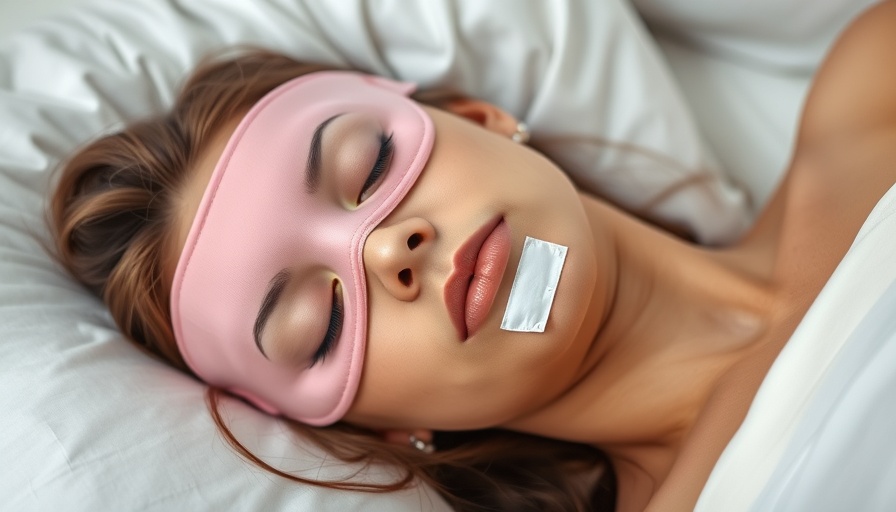
Understanding the Viral Trend of Mouth Taping
In recent years, a new health trend has emerged that has intrigued many: mouth taping during sleep. Advocates claim that this practice can enhance sleep quality by encouraging nasal breathing, potentially preventing snoring and improving overall respiratory function. However, as with many health fads, the story is not so straightforward. A growing body of research suggests that mouth taping might not be as effective as touted and could pose risks that are often overlooked.
What Science Says About Mouth Taping
A recent study has shed light on the possible downsides of mouth taping, revealing that not only does it fail to deliver the promised benefits, but it may also lead to negative health outcomes. The research indicates that participants who used mouth tape experienced discomfort and difficulty in breathing, suggesting that this practice could be harmful rather than helpful. Moreover, therapy for sleep apnea, which is often mistakenly conflated with mouth taping, requires professional medical advice and intervention.
Risks of Mouth Taping You Should Consider
While some people may find temporary relief from snoring by taping their mouths shut, the potential risks could outweigh the benefits. For instance, individuals with respiratory conditions such as asthma or those who are prone to sleep apnea should be particularly cautious. Blocking the mouth might exacerbate these conditions, leading to dangerous situations during sleep.
Additionally, mouth taping can cause saliva build-up, resulting in increased bacteria in the mouth, which can lead to tooth decay and gum disease. A dental professional might advise against such practices, emphasizing the importance of good oral hygiene instead.
Alternatives to Mouth Taping
Rather than resorting to mouth taping, there are safer and more effective ways to encourage nasal breathing. Here are a few alternatives:
- Consult a Sleep Specialist: If you're struggling with snoring or sleep quality, it's wise to consult a specialist. They can offer tailored solutions based on your specific needs.
- Practice Breathing Exercises: Integrating nasal breathing exercises into your daily routine can enhance your ability to breathe through your nose at night.
- Consider Sleeping Position: Sometimes, simply altering your sleep position can help reduce snoring and encourage nasal breathing.
Understanding Sleep Quality
Recognizing the significance of sleep quality is essential for maintaining overall health. Factors contributing to poor sleep can range from stress and anxiety to environmental factors such as noise and light. Addressing these issues holistically can lead to better sleep and well-being.
What You Should Take Away
Ultimately, while mouth taping might have gained popularity as a trendy solution for sleep-related issues, it’s crucial to approach it with caution. Following evidence-based practices and seeking professional guidance will foster healthier habits and improve sleep quality without unnecessary risks. Embracing sustainable health practices can ultimately lead to a happier, healthier lifestyle.
If you’re considering changes to your sleep regimen, remember that informed decisions are the best decisions. Don’t hesitate to approach sleep with a critical eye and explore options that work best for you. As always, prioritizing your health should remain your top priority.
 Add Row
Add Row  Add
Add 




 Add Row
Add Row  Add
Add 

Write A Comment